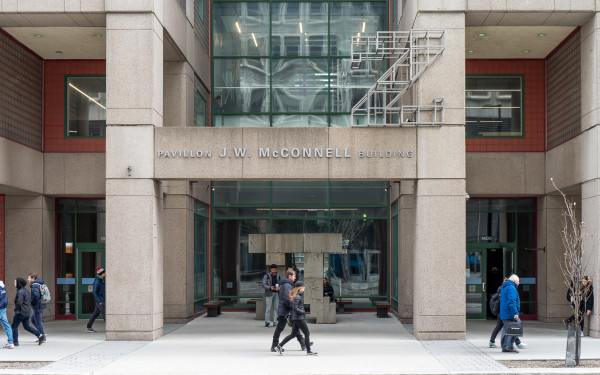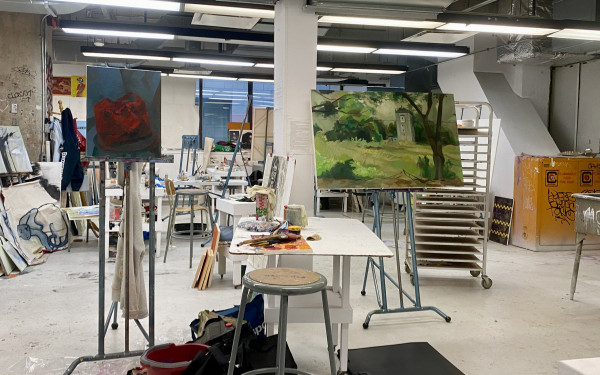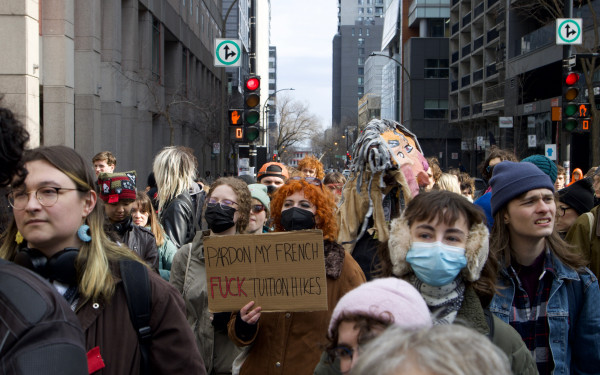Editorial: Education Should Be Accessible for All
We Can’t Keep Pushing Interns and Lower Income Students to the Side
The Link supports accessible and affordable education for all.
Access to higher learning should not be limited to those with the financial means to use a system that discriminates against lower income students.
At a debate on student issues at Concordia on Friday night, student tuition was brought before candidates from six parties running in the provincial election.
Candidates from the New Democratic Party of Quebec, the Green Party of Quebec, and Québec Solidaire all argued in favour of education that is universally accessible—whether it was by making post-secondary education completely free, lowering or eliminating international students’ fees, or paying interns their due.
What was encouraging was that generally, the parties agreed that interns deserved remuneration for their work. The Link believes all students should be remunerated when they take on internships.
We were disappointed to see the Liberal Party, the Coalition Avenir Québec and the Parti Québécois all took vague positions on paying interns, with the CAQ saying they were only “open to the idea” of remunerating more internships.
Unpaid internships contribute to keeping education unaffordable to many students. Internships, like those for nurses and teachers, involve heavy workloads, and should be remunerated. They leave little to no room for the jobs many students must maintain in order to sustain themselves.
Financial stress is the last thing needed during internships, which are critical for graduating and gaining experience for future job opportunities.
Companies, no matter the industry, should not continue to profit off of the back of students’ mandatory internship time, and they especially should not be able to do so when there is often no guarantee of future paid employment at the end of the internship.
As students, we want a fundamental change to how internships work in Quebec. All interns should be recognized by our Labour Code as legally requiring financial compensation. It is important that internships include workers’ rights.
For international students, the financial stress is worse given the higher cost of their tuition.
CAQ candidate Christopher Skeete called costs for international students “relatively low.” In reality, an international student in the John Molson School of Business, for example, will pay the “relatively low cost” of over $22,000 a year with a full course load.
These kinds of costs make it extremely difficult for students to come to this province and weaken the diversity and multinationalism that Quebec is capable of when education is properly accessible. All this at a time when our labour force is shrinking and we need more immigrants to contribute to our economy.
International and out-of-province students should be welcomed and offered the same opportunities for quality education as those from Quebec.
We look towards a future where post-secondary education is free. It’s a step that some are reluctant to look at despite its potential.
Liberal candidate David Birnbaum called the idea of free education “totally unrealistic,” saying that “if you go to school you have to pay for it.”
But several countries like Finland, Germany, and Norway have universities without tuition fees, while maintaining an extremely high standing in terms of quality of education.
The Montreal Economic Institute estimates that free education would cost $1 billion in Quebec. An amount that looks manageable, when considered as a percentage of the over $108 billion in provincial spending reported for the 2018-2019 fiscal year.
Free post-secondary education is possible. It has been proven to be in other countries and with the right plan can work in Quebec as well.
Making education accessible for all remains a priority for us at The Link . While some of the parties also seemed to have the same goal, it’s disappointing to see that the leading parties do not value accessible and affordable education for all.


_600_832_s.png)




